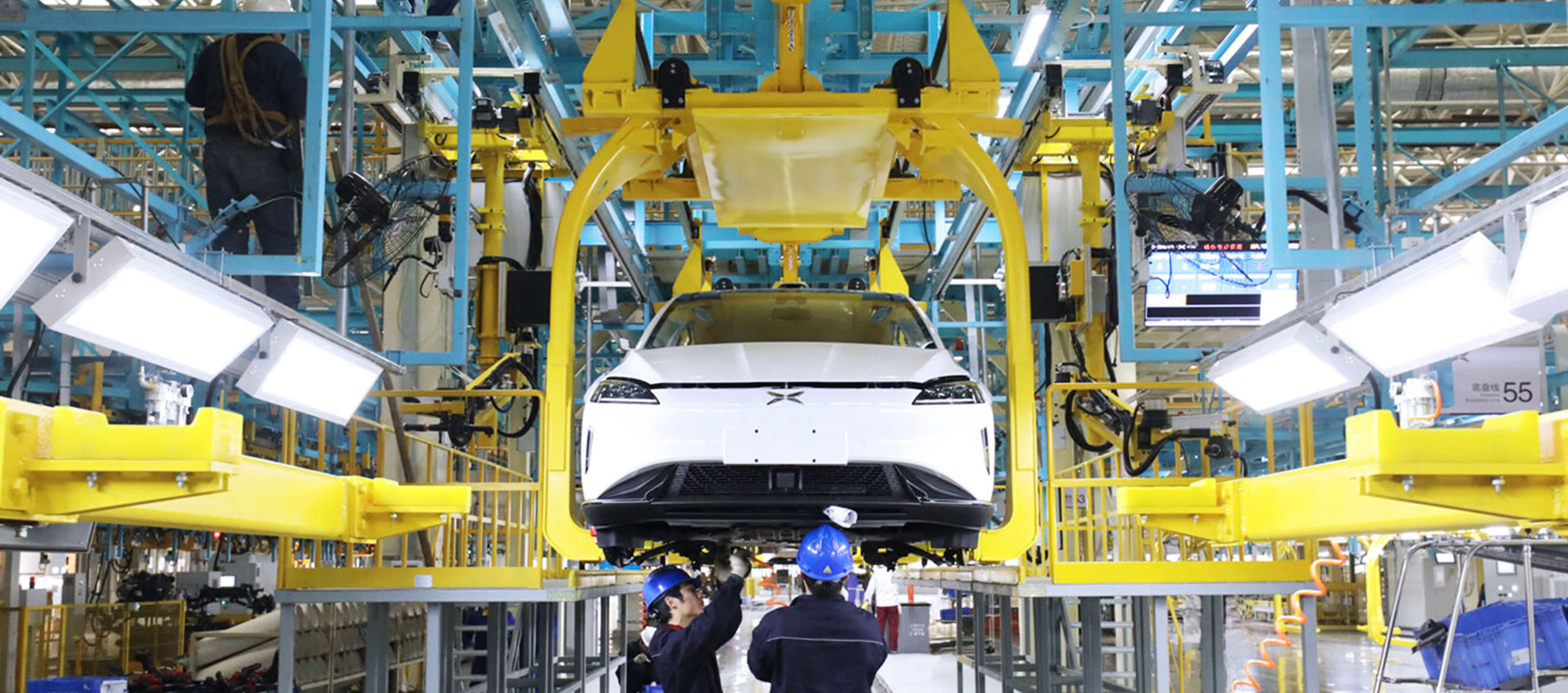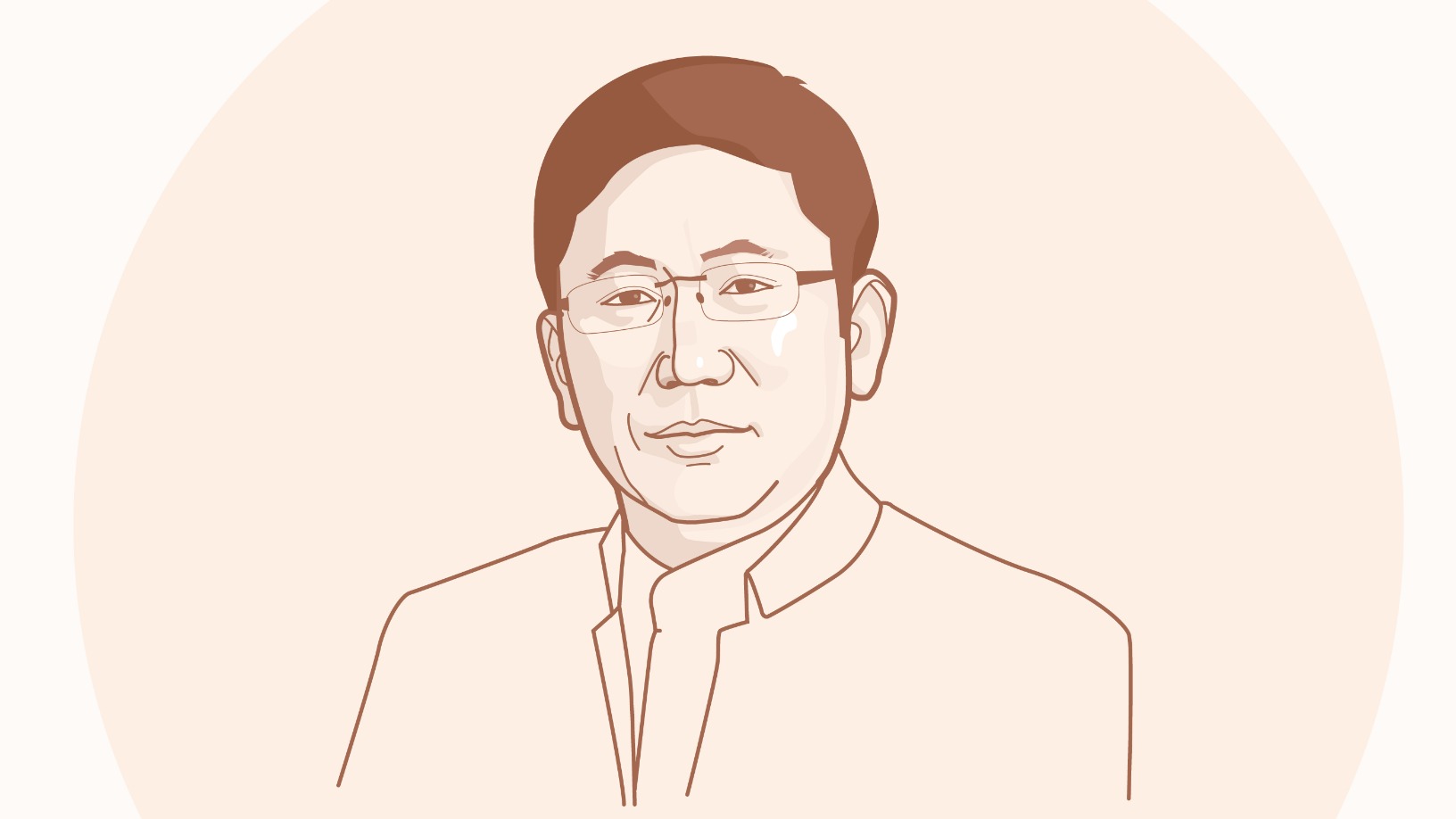Chinese electric vehicle (EV) manufacturer NIO is often known as the local rival of Tesla, but its founder Li Bin refuses to be compared to Elon Musk.
“I am not a fan of Musk... NIO is not a follower of Tesla either," he once said. "We are trying to figure out what we can do to differentiate ourselves from Tesla and do an even better job.”
Li personally invested US$150 million in the business when it was founded in 2014. His faith in NIO was sometimes interpreted by outsiders, or even by peers, as overoptimism.
In August 2018, He Xiaopeng, CEO of Xpeng Motors, another Chinese EV maker, said that no EV startups could deliver 10,000 units that year because of quality control issues and cashflow pressures. But Li bet otherwise, saying NIO could do so.
Li finally won the wager, when NIO handed over a total of 11,348 vehicles to its customers by the end of 2018, close to Tesla’s 13,000 deliveries in China. Among the raft of other EV startups such as Xpeng Motors and Weltmeister, NIO was the first to hit the milestone of 10,000-unit annual delivery.
2018 was undoubtedly a standout year for NIO. The EV maker delivered its first SUV, the ES8, in June and went public at the New York Stock Exchange (NYSE) in September. In December, it unveiled the second mass production model, the ES6, which is expected to be delivered June 2019.
Faster than Tesla?
Li thought NIO has done a better job than Tesla in capital usage efficiency. With US$2.4 billion raised since NIO was founded, he said, “We’ve released two production models with a third on the way. It took Tesla over US$10 billion to bring three models to market."
NIO is also one step ahead by deploying 510 charging vans in over 95 cities to provide a mobile charging service to all electric cars, including Tesla.
Although NIO reported RMB 9.6 billion of net loss in 2018, Li remains confident about the future. “We have begun to deliver cars and we have generated revenue. We have also been preparing for autonomous driving. NIO is the first EV maker in China to put its car on the open road for self-driving tests,” he said.
Baillie Gifford & Co., Tesla’s largest external investor, also has faith in Li’s company. It participated in NIO's Series D funding in October 2017 and continued to buy its shares after the firm got listed, holding a 11.4% stake as of now.
Investors' darling
Since NIO was founded, Li has used his personal connections to land 56 individual investors for his company. Many of them are big names in China’s business world, including Xiaomi founder Lei Jun, Tencent founder Pony Ma and JD.com founder Liu Qiangdong.
According to Liu’s wife, when Li reached out to her husband for investment, Liu said yes within about 10 seconds.
Investors’ confidence in Li has not been groundless. He is a successful serial entrepreneur. When he rang the bell for NIO’s IPO on the NYSE on September 12, 2018, few people knew he had brought another auto-related company – Bitauto – to the bourse eight years ago.
Then in 1999, private cars were a seldom-affordable luxury for many Chinese families. Li, a 26-year-old Peking University graduate, founded Bitauto, a provider of car-focused content and marketing services, to bet on the potential of China’s economic growth and consumers’ rising purchase power. “The whole automobile industry is taking off. We have a chance to succeed,” he said.
He has had a strong sense of business acumen from a young age. When he was a little boy living with his grandparents in a small village in Anhui province, Li would help his grandpa sell cattle and medicated liquor to peasants.
Later, in 1995, when Li was studying for a bachelor’s degree in sociology at Peking University, he set up a company to help internet users register domain names. Back then, the internet was still a new buzz word and his business made hundreds of thousands of RMB a month.
“Li will never rest on past achievements but will always be ready to spot new opportunities,” said Liu Erhai, Founding and Managing Partner of Joy Capital, which has invested in Bitauto, Mobike and NIO.
Mobike was one of the opportunities identified by Li. It's a little known fact that Mobike, once one of China’s biggest bike-sharing service providers, was actually born out of an idea of Li's. It was he who came up with the name, which is the combination of "mobile" and "bike."
Mobike used to be good at raising money and many of its investors came to Li, who was the first investor and chairman of the startup. Since it was founded in 2015, Mobike secured 10 rounds of funding, raising a total of over US$2.9 billion before Meituan Dianping acquired the startup for US$2.7 billion in April 2018.
Forward-looking investor
Li himself is also a veteran investor. The in-car audio service provider AutoRadio is his second biggest personal investment – RMB 29 million in total – after NIO.
“Cars will become a mobile living space in the future," Li has said. "When your hands and brain are freed from driving, audio entertainment will be the best experience you are going to have in a car.”
He predicts the daily active users of AutoRadio will reach 100 million by 2020.
Besides AutoRadio, Li has personally invested in more than 40 companies. All of them are car related, including car trading platforms, providers of car maintenance, car washes and a smart parking service, as well as car-focused content providers.
In 2016, NIO Capital was founded under Li’s stewardship. Automobile, with a focus on self-driving technology, is one of the focuses of this institutional investor.
The media has pieced together Li’s businesses and investment portfolio and called him the “godfather of mobility,” who is building his own mobility empire. Li denied the ambition. For an entrepreneur and investor, he said. “The most important thing is to give users more choices.”











